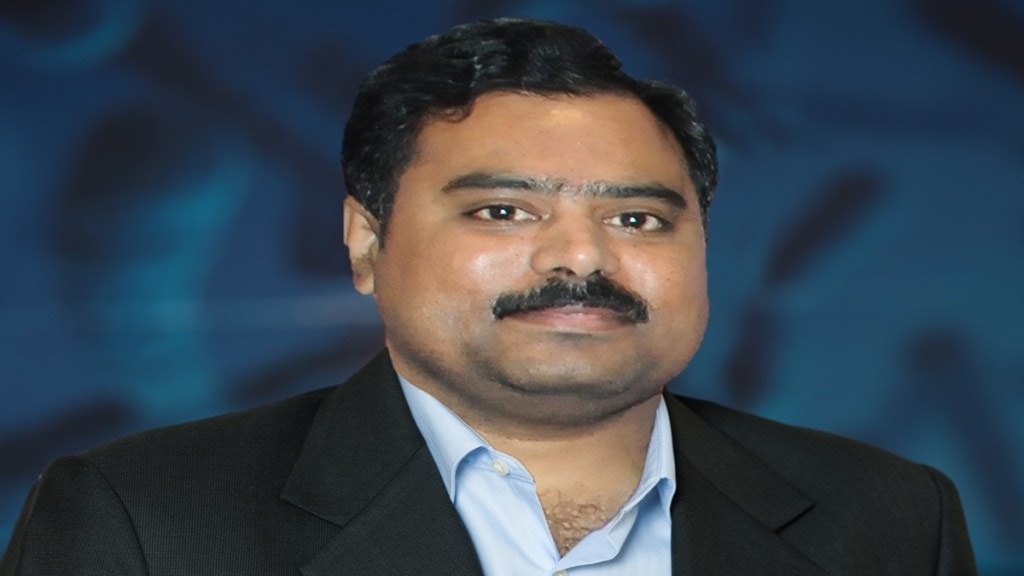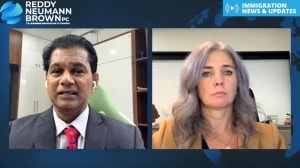Over the years, genomic sequencing and its analysis have become extremely important to identify inherited disorders, characterise the mutations that drive cancer progression, and tracking disease outbreaks.
In the years, several companies have forayed into this segment in order to “capitalise” on the diversity of the Indian population for predicting and controlling disease outbreaks.
After genomic sequencing gained prominence in the 1990s after the Human Genome Project, several companies from countries like the US, the UK, France, Germany, and Japan scaled the emerging technology.
In India, companies like MapMyGenome and MedGenome became pioneers of this trend almost a decade ago. In 2022 alone, over $130 million has been invested in genomics startups in India focused on healthcare—a 120 percent jump from the previous year, according to data by market intelligence firm Tracxn.
According to industry experts, India is spearheading efforts in this space and the advancement in the segment has been such that now it takes less than 5-6 days to get genetic test results as compared to months few years.
To understand the significance and relevance of the Indian population in the context of genomics and the potential of this segment, Financial Express.com reached out to Dr. VL Ramprasad, CEO, MedGenome Labs and he highlighted various characteristics of the genomic segment of India. Excerpts:
India shares a large burden of genetic disorders and ailments. What are the reasons? How MedGenome is tackling this challenge?
India has a vast population, a high birth rate, and the practice of consanguineous marriages in some regions, all of which contribute to the country’s high prevalence of genetic diseases. Add to that the challenges due to a lack of awareness about genetic testing, its affordability, and the availability of the facilities in India. MedGenome was the first to launch next-generation sequencing-based genetic tests in India. The company chose the strategy of developing tests based on clinician feedback and market need and brought many firsts to the Indian market. Clinical exome, NIPT (based on a first of its kind pan India study), Liquid biopsy (which was also the first home-developed liquid biopsy test in India) TB genome sequencing from Sputum are some of the tests. These steps enabled MedGenome not only to create the market but also to establish leadership.
To provide the right product at a low price, it was critical to bring the sequencing costs down. Equipped with the latest technology and infrastructure and constant technology upgradation helped in enabling more and faster sample analysis that improved our TATs. A large Bioinformatics team was set up to develop all the algorithms, data analysis pipelines, and tools in-house so we would not need to license anything from abroad. Many key investors like Sequoia Capital, Sofina, HDFC, LeapFrog, IFC (World Bank), and Novo Holdings believed in our vision and supported us through the journey and continue to provide their support.
What are the key segments that you are working on currently? What are your future plans?
MedGenome has the largest genomics facility in South Asia and state-of-the-art NGS facility that houses several high-throughput sequencing platforms. We offer a wide range of genetic tests, including preimplantation genetic diagnosis, carrier screening, prenatal diagnosis, oncology, cardiology, ophthalmology, blood disorders, etc. – with our four product lines – CLARIA (reproductive genetics), ACTIA (inherited disease genetics), PRIMA (cancer genetics), MICRA (infectious disease genetics). Under the brand name Genessense, we now also offer direct-to-consumer genetic screening tests that provide insights into a person’s health, including risk assessment for Coronary Artery Disease/early heart attack.
Through both our diagnostics and research verticals we have built a complementary business model that allows us to gain a deeper understanding of many diseases. Our agile and scalable bioinformatics platform (developed in-house), comprising proprietary databases and ML enabled software suite, enables us to craft unique genomic solutions for immuno-oncology, diabetes, ophthalmology, cardiology, and rare diseases. Through our genomics research vertical, we provide extensive B2B solutions for research collaborations and have consequently developed reliable long-standing partnerships with large pharma & biotech companies across the globe helping them accelerate their drug discovery efforts.
The company is committed to maintaining its leadership position in the Indian and South Asian genomics market and providing best-in-class research services worldwide. Through deeper penetration, market consolidation, new product development, and bioinformatics solutions for remote diagnostic labs, we plan to increase the accessibility and affordability of genomics in India and other emerging markets.
How India has evolved in the genomic industry in the recent year? What are the key challenges that are present at the moment? What steps need to be taken to improve these challenges?
There have been significant advancements in genetic testing over the past ten years around the world. From sequencing costs coming down to increasing awareness among clinicians, and patients, there is more willingness to opt for genetic testing both to identify the underlying cause of disease and to better understand the treatment options. However, improving the reach and making these tests available to and affordable for all strata of society across the developing economies remains a challenge, we still need to work on. Public-private efforts and insurance coverage, improving clinicians’ knowledge through continuous education and interactive sessions through CME, genetic counseling etc. will improve these challenges significantly.
India is extremely diverse not just geographically and culturally but also genetically. What are the advantages and disadvantages of this diversity?
India is home to a billion people, who come from various ethnic backgrounds. Around 55,000 years ago, India acted as a major corridor for early human migration. The migrations happened in clusters and thus even today most of us have descended from a small group of founding individuals who have been isolated from the others. The boundaries further remained closed with social stratifications, such as religion, castes, and tribes.
The caste system in India is a hierarchical structure divided into several endogamous groups which govern all social, religious, and economic activities of the people. The social boundaries through endogamy and founder effects have given birth to diverse, population-specific traditions and genetic variations among the populations.
When parents have the same common ancestry, there is a greater risk that they will both carry the same mutation, and the offsprings are at a greater risk of inheriting the disease-causing mutation. Further other social practices like consanguineous marriages have increased these effects in some population groups. Indian population data provides the ideal conditions for genetic research and makes it easier to identify common gene variants and associated diseases.
Discovering these disease-inducing genetic variants and adopting prenatal screening to determine carriers will play a major role in identifying and preventing these rare diseases.
The disadvantage is the cost involved in validating and developing the tests and the gap in the community and among clinicians about the importance of participating in a larger scientific study.
What is India’s market share in the global genomic industry? What are the expectations in the coming years?
Genomics gained prominence after the first human genome was sequenced in 2003 and is still relatively young and developing. If you think about it, five years ago, there were just a couple of players in this market. Today, however, there are roughly 13–14 businesses active in this market, both in the discovery genomics and the genomics-driven diagnostics market. Thus, India has a great deal of potential to lead the genomics sector.
In your opinion, what are the major shifts you have witnessed in the genomic industry over the years with respect to pre-covid and post covid era?
Pre-Covid, genomic industry awareness was limited to the clinician and research community who would have to educate patients about the value of the tests and the treatment options available. Post-Covid, mutants and variants became commonly used terms which have encouraged common people to seek genetic testing after being educated on the importance of diagnosis and treatment. During the pandemic, the government also re-evaluated policies and developed primary healthcare centres with COVID-related genetic analysis which has also improved Government’s involvement in preparing frameworks and policies for genetic testing. Genomic surveillance of other Covid like infectious diseases gained traction and certain policies have got momentum.
The prevalence of digital transformation can be seen in almost every aspect of healthcare. How genomics is influenced by digitisation and what is the status of India in this segment?
The growing diagnostic sector in India has witnessed a transformational shift as service providers are taking up automation and other digital technologies to provide better service to their customers. Today, genomic data holds significant promise for enhancing healthcare strategy in several ways, including disease prevention, improved diagnosis, and improved healthcare outcomes.
With the help of artificial intelligence (AI)/ Machine Learning (ML) and next-generation sequencing, genetic diagnosis not only provides routine diagnosis but also tailor-made diagnostics depending on the genetic make-up of an individual, called precision medicine. There has also been an improvement in the way consumers can easily purchase or book genetic testing directly from the company for better health management. The digitisation has widened the spectrum of accessibility.
According to you, what are the next big trends in the genomic industry? What will be India’s role in these trends?
We are moving away from conventional treatment procedures to more accurate medicine in the healthcare sector. The genomic industry focuses holistically on both monogenic and polygenic diseases in a single test. A comprehensive genomic analysis at the whole genome level that predicts the risk of developing non-communicable diseases, such as diabetes, hypertension, and heart disease is something to look forward to.
A strong focus will be placed on identifying and developing the most prevalent monogenic disorders caused by genetic variations in the community that are also geographically specific. With one of the most diverse communities and geographical landscapes in the world, India is a country that clearly shows the greatest potential when it comes to data gathered from the population that can be utilized to predict NCD diseases and more frequent mendelian disorders. Treatment based on specific genetic mutations, therapy-based genetic testing, retinitis pigmentosa, CFTR, DMD, response to treatment Cancer, and inherited metabolic disorders. New gene-based treatments will augment the clinical utility of Genomic testing and research.
India can be the leader in this trend due to the accumulation of big data from the diverse population of different geography at sponsored research labs and in the existing genomic Industries.
There is now an increase in market players in the genomic industry. How does this competition affect consumers and businesses, especially in countries like India?
In the case of a few genetic tests for a monogenic or mendelian disorder, the cost and turnaround time will always be competitive between most service providers, which is beneficial to the client/patient. A lab’s accreditation-validated advanced instruments, skilled staff, domain-specific expertise, and comprehensive testing will always put a lab on top, which impacts the clinician’s test order/request. Further, there are tests that are disease-domain specific for which subject expertise becomes a requirement limiting competition and market players.
MedGenome is the only player in South Asia to provide such a wide and comprehensive spectrum of tests in all major disease areas. Having been the pioneers in this market, we have been able to build strong credibility and trust among clinicians and hospitals and create a robust relationship network. Our in-house proprietary databases and pipelines have given us a strong first-mover advantage. The rapid increase in diagnostic tests over the last decade has helped in building economies of scale and giving us a strong cost advantage. Our technology and science focus will continue to help us maintain our differentiated profile.








